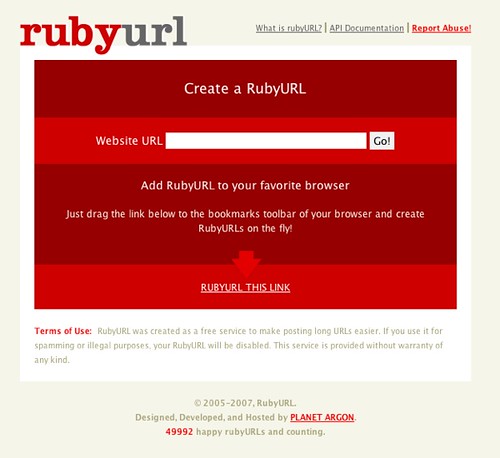It’s been about six weeks since the last Rails Business “Weekly” Review
on here, so perhaps it’s worth changing the name to cut me some slack on
not being consistent. ;-)
Since the last post, we’ve gone from around 400 members to 555 as of
this morning. We’ve had 562 messages as well, so there hasn’t been a
shortage of discussions taking place. I’d like to take a few moments to
highlight some of the discussions that have taken place and encourage
you all to consider participating, if you’re not already.
Licensing and Client Agreements
Tim Case writes,
“My client sent me this agreement drawn up from their lawyer that
included the following:
© the Contractor shall not bundle with or incorporate into any Work
Product any third-party products, ideas, processes, software, codes,
data, techniques, names, images, or other items or properties without
the express, written prior approval of the Company;”
Tim then goes on to ask how his applies to using Ruby on Rails, which as
a MIT license and how other consultancies are handling these types of
situations. Follow the
discussion…
Escrow
Gustin writes, “Does anyone have any escrow experience, legal and cost?
I am dealing with a client that got burned bad and we are reducing their
fear with escrow on the first two iterations.”
Follow the
discussion…
Mike Pence writes, “So, I used to use MS Project for the composition of
those dreaded Gantt charts, but it has been a few years since I had to
be so formal. Anything new and exciting - and more robust than
Basecamp - happening in the world of project planning software?”
Follow the
discussion…
Not long after, Jim Mulholland started a new thread on the same topic
and brought up the open source application, redMine. Follow this
discussion…
Ruby on Rails versus .NET
Michael Breen asked a big question on the list, which has sparked an
going discussion about the benefits of using Rails versus .NET (and
other platforms).
“A couple of months ago I decided to stop actively pursuing .NET gigs
to focus on Rails. Several of my existing .NET clients have learned of
this through the grapevine and have contacted me to discuss.”
Follow the
discussion…
Three things Tim’s learned from Freelancing Rails
Tim Case shared his experience of freelancing with Ruby on Rails and
highlights three things that he’s learned.
- The non-code business aspect of Freelancing is demanding.
- It takes 10 hours to bill 6 to 8.
- Figuring out your rate is hard.
Read the rest of Tim’s observations and the discussion the
followed.
Client issue tracking and documentation
Jeff Judge writes, “Hello all! I was curious to here how people are
handling client issue tracking and documentation.”
Several applications were mentioned for handling issue tracking and the
general consensus was that there was still a lot to be desired that
current options didn’t provide. Be sure to follow the
discussions…
These were just a small handfull of the discussions that have taken
place over the past several weeks. If you’re an aspiring Rails
freelancer or business owner, be sure to join the
community and
share your experiences and learn from other members of the community
that are willing to share theirs.
Until next time, have fun!





 {width=”500”
height=”458”}
{width=”500”
height=”458”}
